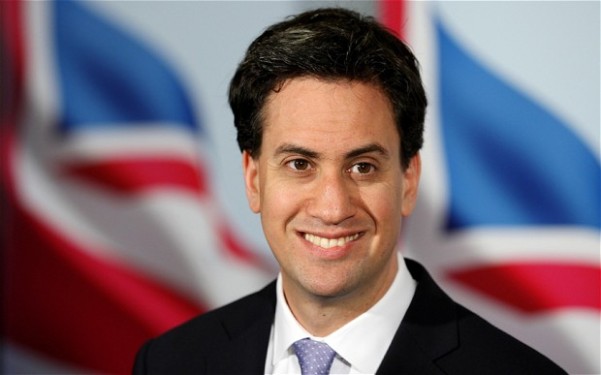Caribbean news. The political parties contesting the May 7 general election in Britain have now published their manifestoes and my friend and colleague, Professor Philip Murphy, found in them a ‘decidedly lukewarm attitude’ to the 53-member Commonwealth of Nations.
He notes that the Labour manifesto “makes only a couple of brief mentions of the Commonwealth. Even then, it is relegated to an item on a list of other organisations and networks to which the UK belongs, such as NATO, the G20 and the EU”. He concludes that: “The tactic is clear: name-check the Commonwealth in a paragraph about Britain’s global reach, so as not to be accused of ignoring it, but make no attempt to explain what specific role it would play in a Labour government’s foreign or economic policy”.
Professor Murphy believes that the Conservative and Liberal parties have duplicated this tactic in their manifestoes. In a passage that he regards as being largely cut and pasted from their 2010 manifesto, he observes that the Conservatives have pledged to “use our membership of NATO, the EU, the Commonwealth, our UN Security Council seat, our Special Relationship with the USA, our intelligence agencies, vital institutions like the BBC World Service and British Council, and the strong personal links between our diaspora communities and other countries, to achieve the best for Britain”.
According to Professor Murphy, the Green Party manifesto simply ignores the Commonwealth as does the Scottish National Party, but at the opposite end of the political spectrum the new party on the block, the United Kingdom Independence Party, references it “as a tool to refute the claim that Britain is too small to survive outside the European Union”.
Professor Murphy’s examination of the manifestoes of the British political parties is to make the broad point that “the marginalisation of the Commonwealth in this election should certainly come as no surprise. British governments tend to enter office promising to take the Commonwealth more seriously and to exploit its supposedly vast “potential”, only to find that the task is more difficult than they imagined”. He concludes that “it is difficult to think of a single major achievement of the Commonwealth since 2010 (the year of the last British general election). Hardly surprising, then, that Britain’s political parties are still not prepared to set themselves up for a fall by genuinely investing in it”.
While Professor Murphy, as a British academic and Head of the Institute of Commonwealth Studies in London, is rightly concerned with the attitude of British political parties to the Commonwealth, too much should not be made of what is reflected in their manifestoes on this subject.
Manifestoes for general elections are by their very nature focused on the issues of greatest concern in the societies to which they are directed. Per force domestic matters occupy pride of place – and there are many such matters in this general election, particularly the economy and inequality in earnings, the National Health Service, and immigration and its effect on social services. Non-domestic issues seldom find a prominent place in general elections unless the country is embroiled in a conflict at which the state is exposed. Apart from general disquiet about the terrorist group, ISIS, Britain is not now involved in a conflict that arouses popular anxiety.
Therefore, the fact that the Commonwealth does not receive detailed and special discussion in the manifestoes of the political parties ought not to be a reflection of lack of interest in it any more than the absence of meticulous and specific treatment of the United Nations. General elections are by their very nature, parochial.
An examination of manifestoes in many countries in recent general elections, including Africa, the Pacific and the Caribbean, reveals that the Commonwealth received no greater mention than that reflected in the manifestoes of the British political parties. The reason is the same in each of these countries – the electorate is concerned with the immediate issues that affect their lives. The political parties must respond to those concerns or perish. That is not to say that the parties do not have a duty to introduce other important matters into their policy statements. In Britain, as in other Commonwealth countries, the major political parties have done so within the constraints of a ferocious debate on domestic issues.
Of course, Professor Murphy is right that “it is hard to think of a single major achievement of the Commonwealth” since the last British general election. Indeed, in recent years, fractious and divisive conditions have arisen from years of neglect in which the Commonwealth could have been reformed and inspired by its leadership. The absence of vibrant initiatives to keep Government fully engaged in preserving and strengthening the association has led to the inertia and lack of enthusiasm in which it now languishes.
But that is a separate issue. At the root of the current malaise is a North-South divide that has crept into the association’s decision-making bodies at the inter-governmental level. Significantly, it is not a divide that is replicated in the more than 90 Commonwealth civil society groups. The divide has shifted the inter-governmental Commonwealth from the use of its greatest strength to wallowing in its greatest weakness. It is that shift that requires the most urgent attention.
The Commonwealth can be an association of considerable influence for good in its countries individually and collectively as well as for the international community, if its members accentuated the matters on which they find common ground on issues such as: fair and just trade; addressing terrorism; reform of the international financial system to boost economic development; promoting understanding and tolerance of the rights of minority communities, tackling climate change and global warming; looking to the needs of small and vulnerable states; strengthening democratic institutions for economic and social development as much as for political stability.
These are issues that matter to the people of the Commonwealth. If they were tackled vigorously and effectively, they would have to be acknowledged and commended in policy documents, including political party manifestoes.
(The writer is an International Affairs Consultant and Senior Fellow at the Institute of Commonwealth Studies at London University)
Responses and previous commentaries: www.sirronaldsanders.com




